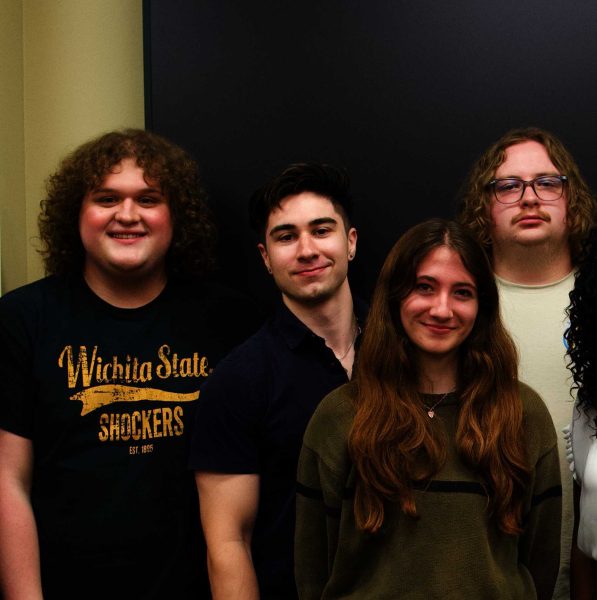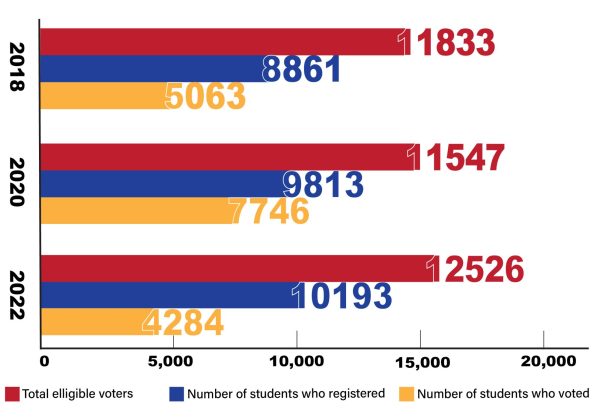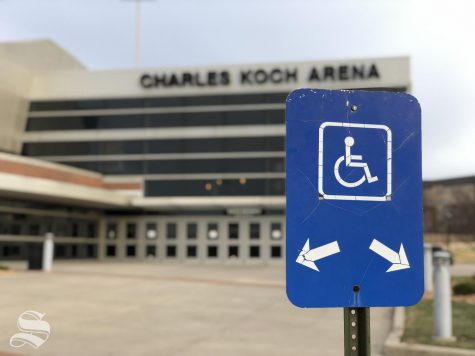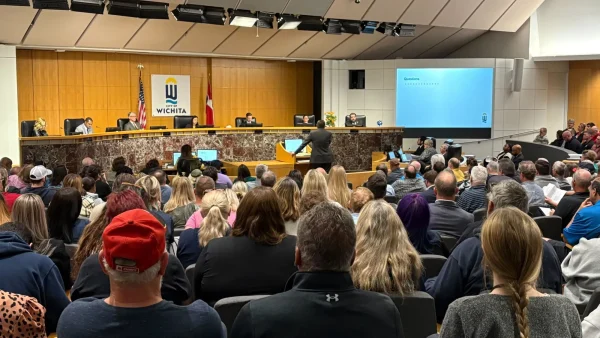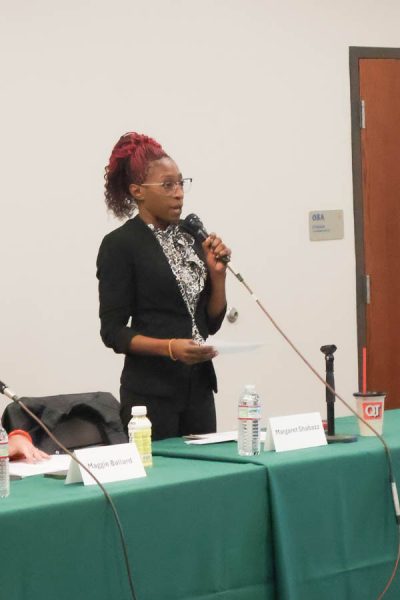Wichita State gave more than $7.1 million to Innovation Campus nonprofit in its first 3 years
From 2014 to 2016, in the midst of a state-funding crisis for Kansas universities, tax documents show Wichita State gave more than $7.1 million to the nonprofit organization managing Innovation Campus.
During that three-year period, state funding to WSU decreased by 7.4 percent. To try to make up for those cuts, WSU raised tuition and fees by 14 percent.
By the end of the 2016 school year, Wichita State President John Bardo froze new hires and spending above $5,000, which would from-then-on need his executive team’s approval. Department budgets shrank, tenure lines were snipped, cost-of-living salary increases for faculty were postponed, and positions were eliminated. In 2016 alone, WSU lost 46 full-time positions through attrition — positions left unfilled once an employee retired, resigned, was fired, or died.
During that same time, Wichita State gave $7.1 million in grants, loans, and rent payments to Innovation Alliance, a university-affiliated nonprofit incorporated in 2014 to manage public-private partnerships on WSU’s research park, Innovation Campus.
Part of Innovation Alliance’s purpose, according to minutes from its first board meeting, is to distribute profits and cash flow from Innovation Campus back to WSU.
For the $7.1 million WSU gave Innovation Alliance in its first three years of operation, it got back $832,959, according to IRS Form 990s filed by the nonprofit. That’s a $6.3 million difference.
Comparable tax information documents for 2017 and 2018 are not yet available and The Sunflower declined to pay an estimated $1,500 WSU is charging for financial transaction records for the past year.
Wichita State has been tight-lipped about what it contributes to Innovation Alliance — an attorney for both the university and the nonprofit wouldn’t say if WSU contributes any money at all, and another attorney for the university tried to charge The Sunflower $1,500 for records of the nonprofit’s financial transactions — but tax documents show the university has put a lot of money into the nonprofit.
Innovation Alliance’s Form 990s, which are required to be filed with the IRS and made available to the public on-request for certain nonprofits, provide a broad sketch of financial transactions involving Innovation Alliance, which leases land from WSU and subleases it to private businesses on Innovation Campus. Filings for 2017 and 2018 are not available at this time.
Innovation Alliance has been under increased scrutiny as Innovation Campus projects come to light without input from faculty, staff, or students. One state lawmaker said the process seems like a “work-around” to bypass public discussion and accountability. A student leader said the president of Innovation Alliance, John Tomblin, explained the process as a way to “work around” state building laws.
President John Bardo, who hand selects the board members for Innovation Alliance, has continually defended the university’s development model.
“The truth is,” Bardo wrote in his latest newsletter, “that WSU has followed and will continue to follow state law and KBOR policy for every project on the Innovation Campus today and in the future.”
“We understand and expect to be subject to public scrutiny,” Bardo said in the letter. “As we work, with your help, to sustain the university into the future, we will continue to achieve progress with transparency.”
Part of the reason the broader campus community feels left in the dark about Innovation Campus deals, as The Sunflower reported earlier this month, could be because President Bardo signed a nondisclosure agreement between WSU, Innovation Alliance, and Innovation Alliance Investment Corporation, a for profit entity, that limits what university employees can say about Innovation Campus projects.
President Bardo is the chief officer of the university, nonprofit organization, and for-profit corporation.
Innovation Alliance’s attorney said the sole member of the for-profit company’s board is President Bardo. From 2014 to 2016, Innovation Alliance put $788,825 into the for-profit investment corporation. Less than half of that money went back into the nonprofit, which received $318,426 from the investment corporation during that time.
Innovation Alliance leases ground from the university and then leases that ground to private developers on Innovation Campus, a campus expansion project doubling the size of campus by building on what used to the university golf course directly east of campus. The nonprofit also recently leased a university building to a Koch family-funded private elementary school.
Innovation Campus projects discussed behind closed doors
Many projects on Innovation Campus have been leased to the closely-held nonprofit Wichita State Innovation Alliance and then sub-leased to third parties without a public discussion, vote, or a competitive bidding process normally required for state-owned property.
Questions about Innovation Alliance began at a Faculty Senate meeting following an announcement, through the Wichita Eagle, that a Koch family-funded private school would be leasing a building on campus. That lease agreement had already been signed by Innovation Alliance well before the decision was announced.
Innovation Alliance President John Tomblin, who is also WSU’s vice president of research and technology transfer and the executive director of the National Institute for Aviation Research, had been in discussions with the Koch family about bringing the private school called Wonder to Wichita State since last spring. On Dec. 19, he signed a lease agreement with Wonder. On Feb. 4, the university found out about the deal through a Wichita Eagle article.
Similarly, last spring, student government was asked to vote on a proposal to substantially increase student fees to fund a YMCA on Innovation Campus. Tomblin had been in discussions with the Y for 18 months before giving student government two weeks to vote on the fee increase.
Tomblin said if the student government did not approve of it, the project would not go forward. Student government opposed the fee increase for the Y, but President Bardo said in a written statement that “These facilities (the Y) are important enough to the future of the university that I’ve asked members of our team to keep exploring the idea despite a vote last week by Student Government Association to oppose it.”
The new session, led by student body president Paige Hungate, who was one of eight senators to vote in favor of the Y in the previous session, and Breck Towner, who had worked in President Bardo’s office prior to seeking the office of vice president, quickly passed a resolution in favor of the fee increase before the school year ended.
Last summer, WSU closed its own dorms to move about 300 students into a private apartment complex on Innovation Campus after fewer than one in five beds at the expensive complex had been filled about a month before move-in day. WSU leases the land where that complex is located to Innovation Alliance, which leases it to the private company that runs apartment, which then leases the space inside the building back to WSU. Next year, WSU plans to pay more than $2.5 million to the private company, which is owned in-part by the chairman of the Kansas Board of Regents, David Murfin.
In September, the Wichita Eagle reported Airbus, the first partnership on Innovation Campus, was well below expected student involvement on Innovation Campus.
Innovation Alliance drafted a resolution as part of its justification to lease the area to Airbus that projected as many as 200 engineering students would work at Airbus. This fall, 11 WSU students were employed at Airbus, down from 14 students last spring.
President Bardo and his spokesperson, Lou Heldman, have both stricken down criticism of Innovation Campus as the public expecting too much too quickly, comparing unmet expectations on Innovation Campus to expecting NBA superstar LeBron James be in the NBA at age one and complaining that a project won’t serve underprivileged students “is a little like complaining that the newborn can’t dunk the ball.”
In President Bardo’s March newsletter titled “The truth about Innovation Campus: A crucial collaboration for WSU’s survival,” he said these types of “collaboration with industry and community partners is now crucial for public universities to thrive.”
President Bardo said universities’ motivations for developing research parks, such as Innovation Campus, include “the possibility of financial gain associated with technology transfer, the opportunity to have faculty and students interact at the applied level with research organizations, and a desire to contribute to regional economic growth.”
President Bardo said the public-private partnership model being used on Innovation Campus “minimizes WSU’s financial burden and risk while ensuring a valuable return on investment to the university because, at the end of each lease, the university acquires the improvements on the land for its own use.”
Details of the 990s
Wichita State gave Innovation Alliance a $575,000 grant in 2014. In 2015, it gave the nonprofit a more than $1.4 million grant. Then, in 2016, the university gave the nonprofit an almost $2.9 million grant. That’s about $4.9 million.
Wichita State loaned Innovation Alliance $238,056 in 2014. In 2015, it loaned the nonprofit $526,908. Then, in 2016, the university loaned the nonprofit $647,853. That’s about $1.4 million.
Besides grants and loans, Wichita State also paid rent to Innovation Alliance, starting in 2015. It paid the nonprofit $343,000 in 2015 and $490,000 in 2016 for rent. That’s $833,000.
In total, $7,125,073 in university money went to Innovation Alliance between 2014 and 2016.
The first two projects on Innovation Campus, Partnership Building One that houses Airbus and the experiential engineering building, opened in 2017.
———
2014 Wichita State Innovation Alliance Transactions

2015 Wichita State Innovation Alliance Transactions

2016 Wichita State Innovation Alliance Transactions

Full 990s available here:
2014 Innovation Alliance Tax Form 990

Chance Swaim was the Editor in Chief of The Sunflower from fall 2017 to spring 2018.
Swaim was a graduate student in the English Department working...




